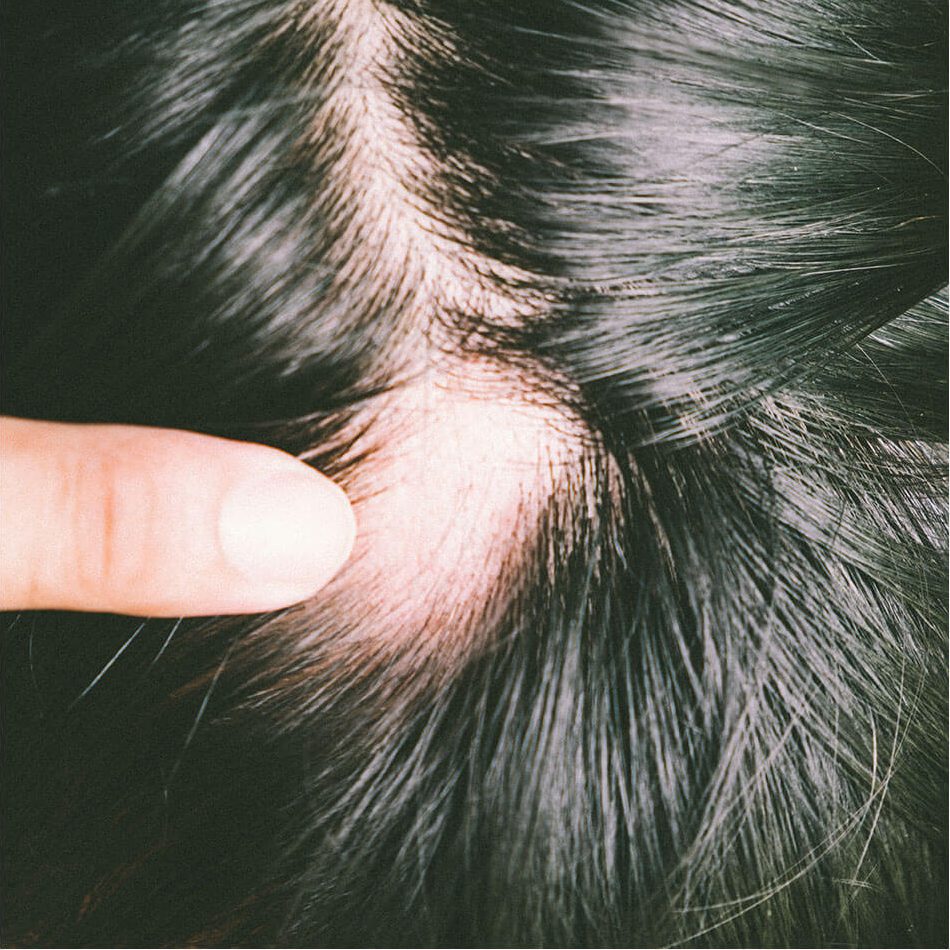Causes and Solutions of Hair Loss
Watch as Margaret Kontras Sutton, M.D. discusses the causes and solutions of hair loss in both men and women. https://www.youtube.com/watch?v=lmugupdqZHY
Sutton Dermatology + Aesthetics
7100 Stephanie Lane
Lincoln, NE 68516
Phone: (402) 484-9009
Monday–Thursday: 8 a.m.–5 p.m.
Friday: 8 a.m.–3 p.m.
Sutton Dermatology + Aesthetics
5100 N. 26th Street
Lincoln, NE 68521
Phone: (402) 484-9009
Monday: 8 a.m.–5 p.m.
Tuesday: 8 a.m.–4 p.m.
Wednesday: 8:30 a.m.–5:30 p.m.
Thursday: 8:30 a.m.–4:30 p.m.
Friday: 8:30 a.m.–3 p.m.
Sutton Dermatology + Aesthetics
6900 L Street
Lincoln, NE 68510
Phone: (402) 484-9009
Monday: 8:30 a.m.–4:30 p.m.
Tuesday: 8 a.m.–5 p.m.
Wednesday: 8 a.m.–4 p.m.
Thursday: 8:30 a.m.–3:30 p.m.
Friday: 8 a.m.–3 p.m.
Hereditary balding or thinning is the most common cause of hair loss. The tendency can be inherited from either the mother’s or father’s side of the family. Women with this trait develop thinning hair, but do not become completely bald. There is no cure, although medical treatments are available. Topical agents applied to the scalp, such as minoxidil and others, are effective. Oral medications such as finasteride, minoxidil and others can be considered. Oral supplements may be helpful for some individuals.


In this type of hair loss, hair usually falls out, resulting in smooth, round patches about the size of a coin or larger. This disease may affect children or adults of any age. The cause of alopecia areata is unknown. Apart from the hair loss, affected persons are generally in excellent health. The hair may regrow by itself or may require treatments. Topical corticosteroids and other topical agents are effective. Injections of corticosteroids into the affected areas are often recommended. For the most severe cases, there are systemic medications available.
Both an over-active thyroid and an under-active thyroid can cause hair loss. Your physician can diagnosis thyroid disease with laboratory tests. Hair loss associated with thyroid disease can be reversed with proper treatment.


Some people who go on crash diets that are low in protein, or have severely abnormal eating habits, may develop protein malnutrition. The body will save protein by shifting growing hairs into the resting phase. Massive hair shedding can occur two to three months later.
Some prescription drugs may cause temporary hair shedding. Examples include some of the medicines used for the following: gout, arthritis, depression, heart problems, high blood pressure, or blood thinner. High doses of vitamin A may also cause hair shedding.


Women who lose hair while taking birth control pills usually have an inherited tendency for hair thinning.
Iron deficiency occasionally produces hair loss.


Anyone who has a major operation may notice increased hair shedding within one to three months afterwards.
Cancer treatments, fungal infection (ringworm) of the scalp and hair pulling (trichotillomania) may also cause hair loss.
If you’re ready to schedule an appointment with our team of board-certified dermatologists, physician assistants, or nurse practitioners, book an appointment online or call us at (402) 484-9009 to get started.
Our three locations were designed with your comfort and convenience in mind.
Visit Our Locations



